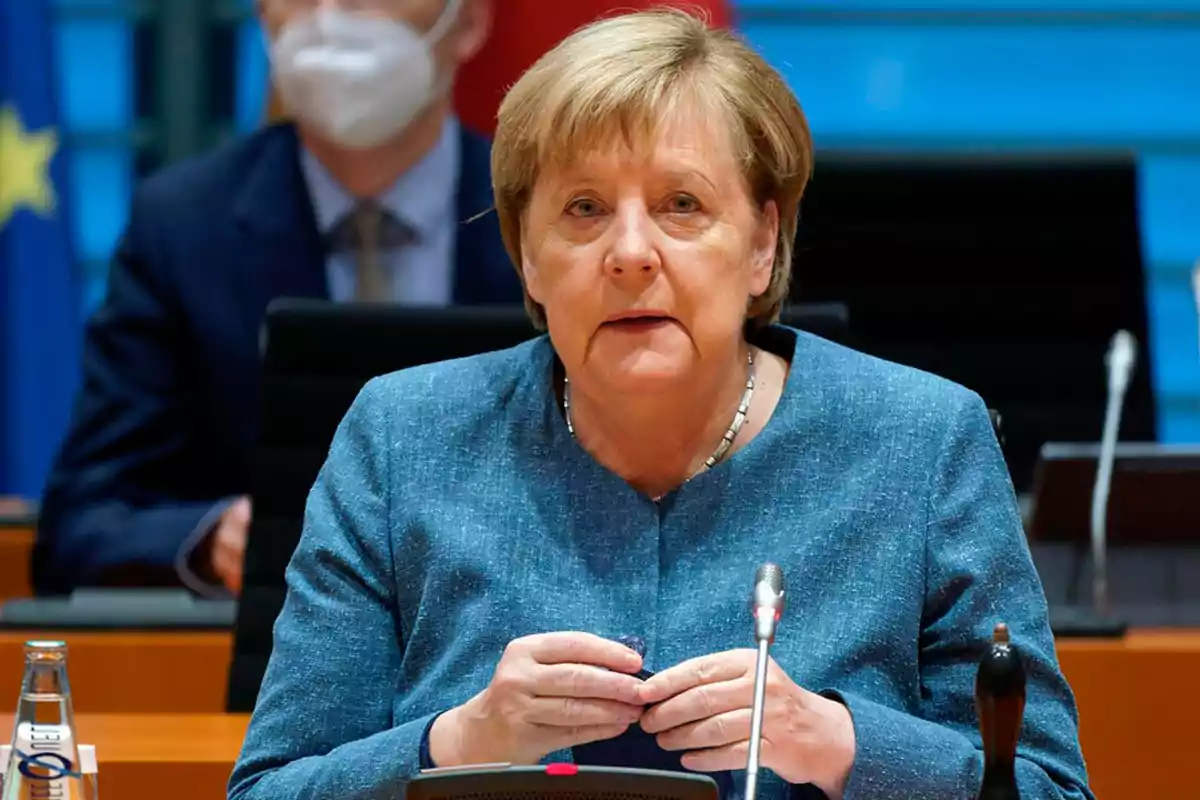
Ten years have passed since Merkel's socialism plunged Germany into the shadows.
This September 5 marks a decade since Socialist Angela Merkel plunged Germany, dragging Europe into the abyss
On September 5, 2015, Angela Merkel threw open Germany's borders to millions of illegal immigrants. With a simple "Wir schaffen das" ("We can do it"), the chancellor handed over national sovereignty on a silver platter and unleashed a crisis that still shakes Europe today. It was not a political decision; it was an act of ideological faith. It was not strategy; it was dogma.
Ten years later, the bill is unbearable. Germany went from less than 10% foreign population to more than 15%, which means that today more than 13 million foreigners reside in the country.
In 2024, almost 300,000 asylum seekers received a German passport as if nationality were a disposable coupon. Violent crime jumped from 180,000 cases to 220,000, and in prisons the proportion of foreigners soared from 24% to 37%. On top of all this is a colossal expense: more than 240 billion euros allocated to maintain an experiment that sank the country.
The social result is devastating. Bürgergeld, the social assistance renamed in Germany as "citizen's money," became a magnet: almost half of those funds end up in the hands of foreigners, with more than 50% of Syrians and almost half of Afghans living on subsidies, while only about 5% of Germans themselves receive that assistance.
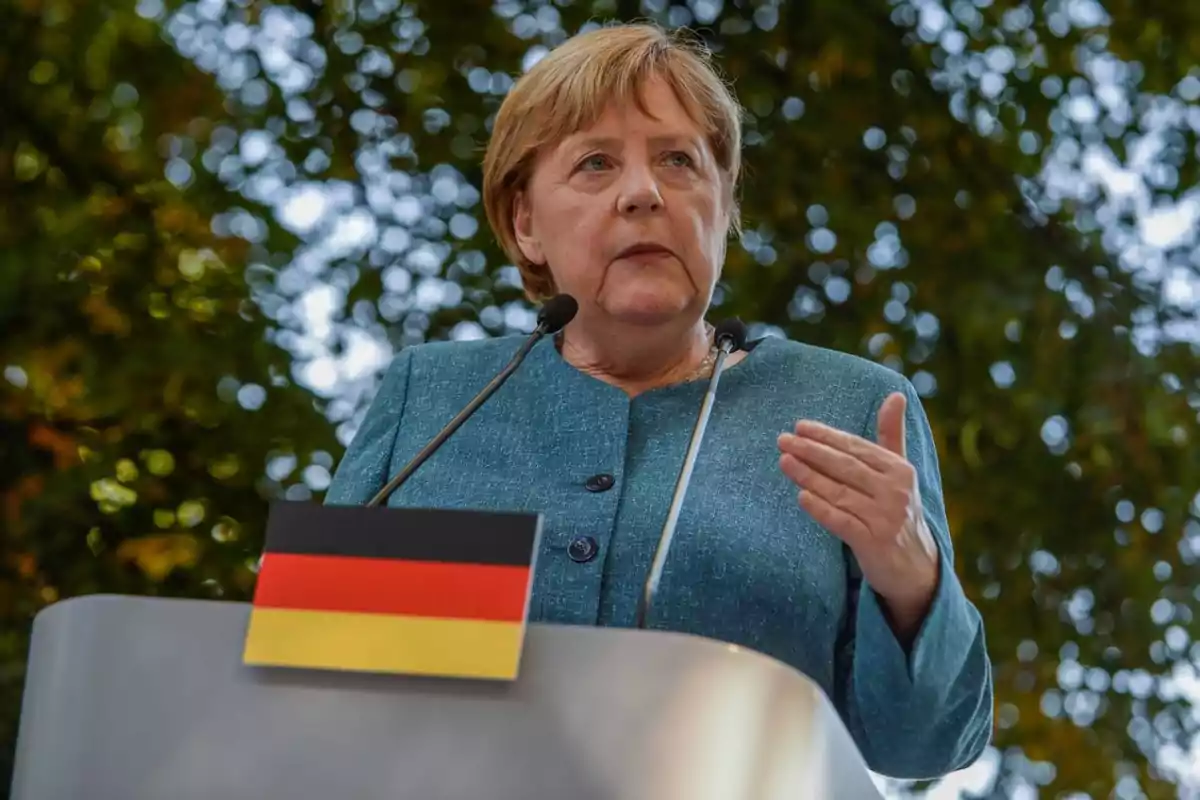
Schools are collapsing; in more than a thousand schools German children are a minority and academic results are plummeting year after year. Two-thirds of citizens demand less immigration, not more. Frustration is such that even Canada issued a travel alert due to the risk of terrorism and knife attacks in Germany, the country that once promised to "manage" migration and is now seen as an unsafe destination.
Migrant violence has completely transformed daily life in Germany. What used to be peaceful cities and safe celebrations have become scenes of fear. Cologne became a symbol of the mass sexual assaults of New Year's Eve 2015, a shock that broke trust in public spaces.
In Berlin, the 2016 Christmas market attack ceased to be an isolated case and became the sign that Islamist terrorism was already within the borders. Würzburg and Ansbach were marked by knife attacks committed by asylum seekers, showing that even medium-sized cities could be suddenly struck.
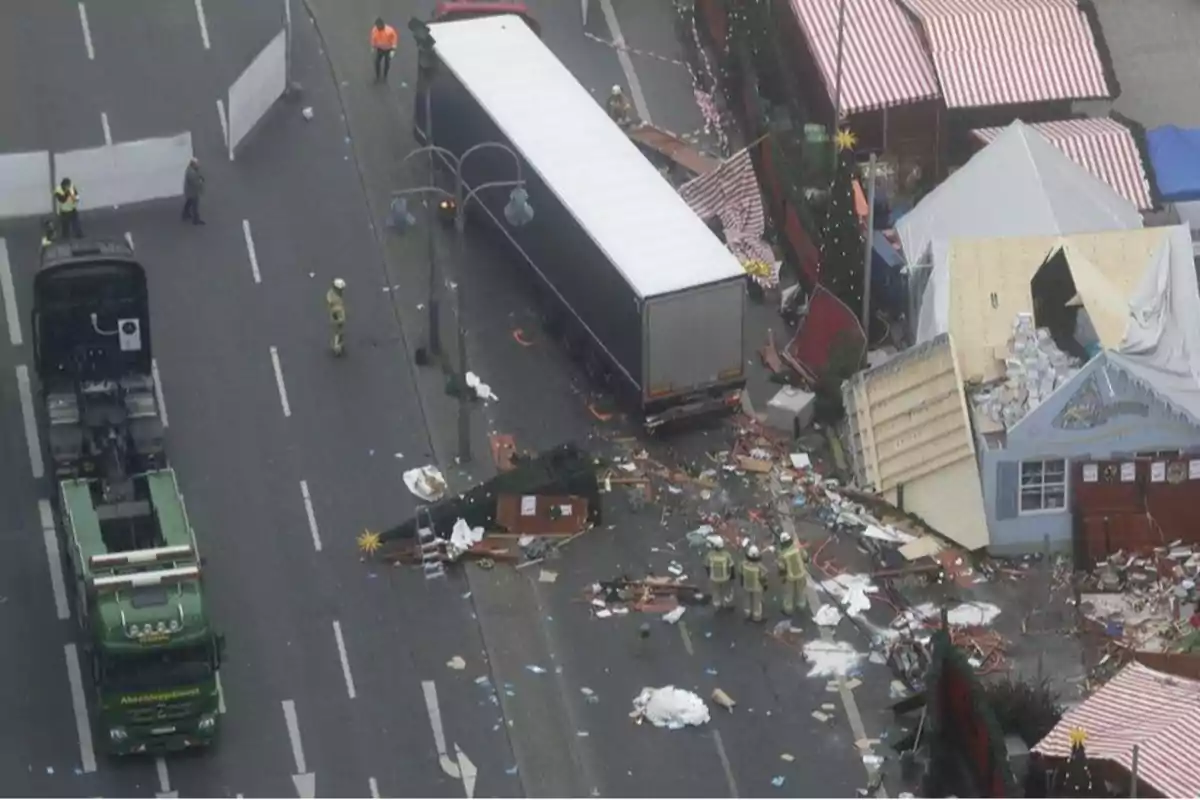
In Chemnitz and Friedland, riots and crimes linked to migrants revealed a social fracture that authorities could not control. The change was deep: walking at night ceased to be normal and became a risk; public transportation and traditional festivals, from Oktoberfest to Christmas markets, began to be seen under the shadow of a possible attack.
Women were the first to notice: advice like "do not go out alone" or "avoid certain areas" multiplied in cities that once prided themselves on safety. What was lost was not just statistical tranquility, but the daily certainty that the common space belonged to citizens.
Merkel did not govern as a chancellor; she preached as a priestess of a globalist religion: human rights without borders, compassion without order, hospitality without prudence. The media questioned nothing; they became a chorus for the dogma and imposed the Willkommenskultur, that is, the "culture of welcome" that celebrated the massive arrival of immigrants and labeled as "populist" anyone who criticized it.
Language was policed more zealously than the borders. Meanwhile, as millions of strangers entered unchecked, the State monitored its own citizens through the Verfassungsschutz, the German domestic intelligence service tasked with spying on internal political movements. Open borders for strangers, closed freedoms for natives.

Internationally, the disaster was no less severe. Erdogan used migration as a weapon of blackmail against Brussels, Russia and Türkiye advanced in the Balkans and the Middle East, and China consolidated its economic power. Europe went from being a pole of attraction to becoming a hostage of external actors. What Merkel presented as "moral" was, in reality, a strategic surrender.
The most serious thing is that there were alternatives. Hungary built walls under Viktor Orbán, Austria reintroduced border controls, Denmark toughened its asylum laws. All demonstrated that sovereignty could be defended. Merkel, on the other hand, chose surrender and the dogma of the "inevitable."
In that silence, only one political force dared to speak: Alternative für Deutschland (AfD). What began as a marginal party became the third national force and main opposition.
It did not invent indignation; it articulated it. It did not create discontent; it gave it a name, a flag, and representation. It was the only one to say what others denied: that Cologne was not an accident, that mass immigration fractures social cohesion, that freedom of expression can't be a thing of the past.
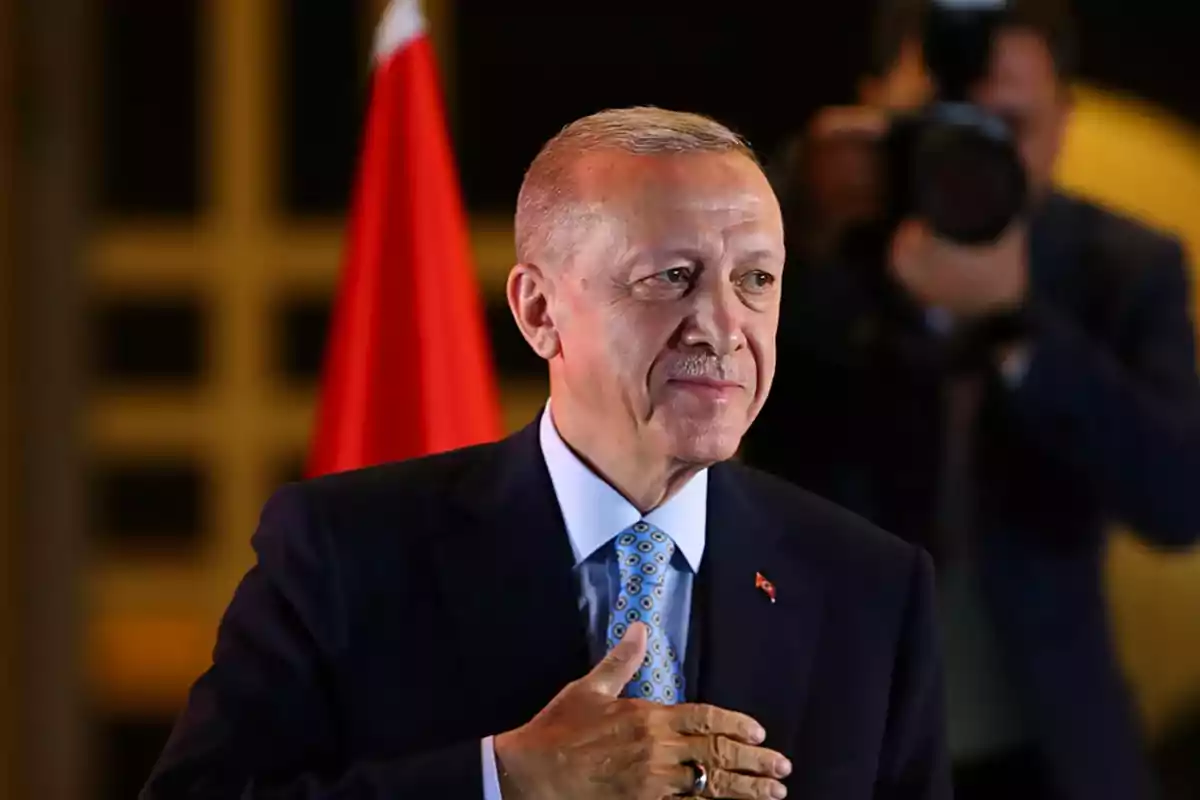
In 2015 Merkel opened the doors with a "Wir schaffen das" and promised integration, security, and prosperity. Ten years later, Germany is a less secure country, more divided and poorer.
Crime linked to immigrants can no longer be hidden; women avoid going out alone at night, families feel watched on public transportation, and Christmas markets have more police than visitors. The State, instead of protecting its citizens, demands that they get used to fear as if it were part of modern life.
What was presented as "humanity" was in reality a demographic experiment imposed on millions of Germans who were never consulted. National sovereignty was reduced to an empty slogan, and the cost is paid every day by taxpayers who see their pensions sink, their schools close, and their money diverted to support newcomers who never contributed anything.
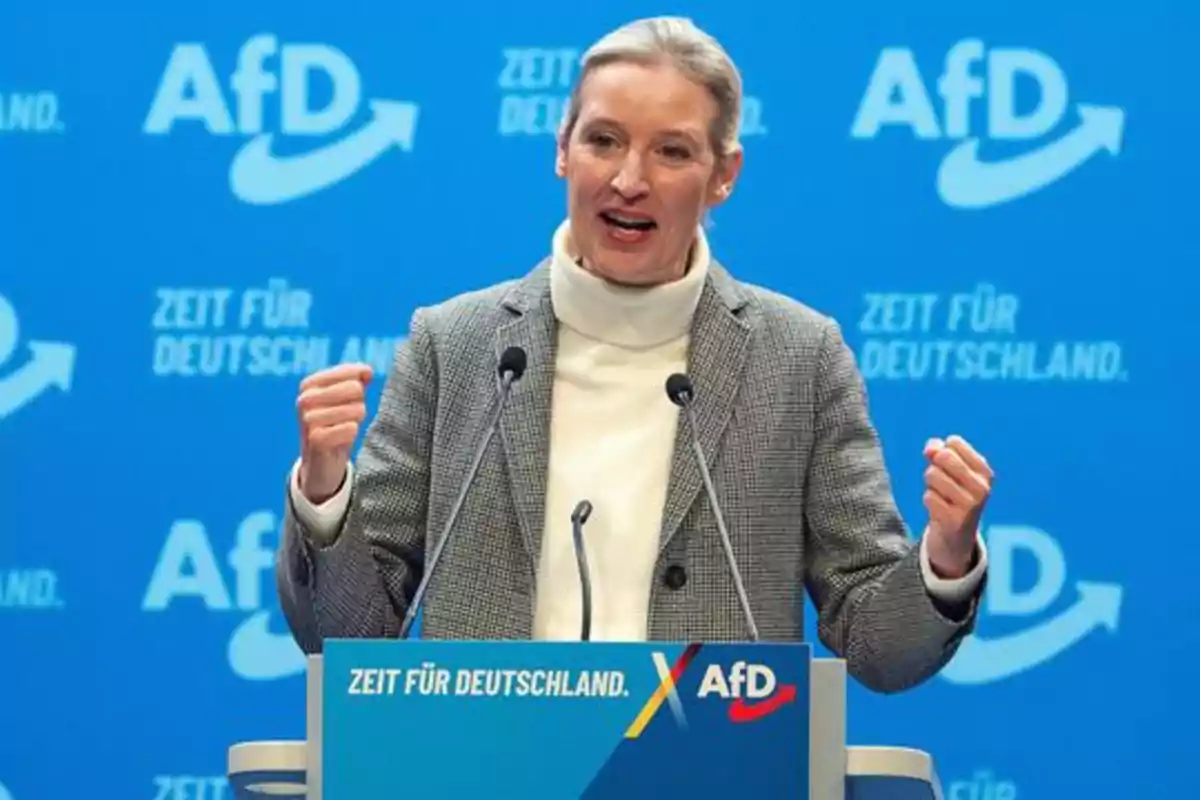
Meanwhile, European elites repeat Merkel's moralistic discourse as if nothing had happened. But the people are no longer the same: two-thirds of Germans demand less immigration, not more. AfD, demonized by the establishment, became the only voice that reflects what millions think and feel.
This is the true legacy of "Wir schaffen das": a broken country, a distrustful society, and a weakened Europe. Merkel may write her memoirs under the title Freedom, but Europeans know that what was lost in Cologne, in Berlin, and in so many cities was precisely that: the freedom to live without fear in their own streets. It was not a mistake; it was a betrayal. Ten years later, Germany is still paying the price.
More posts: